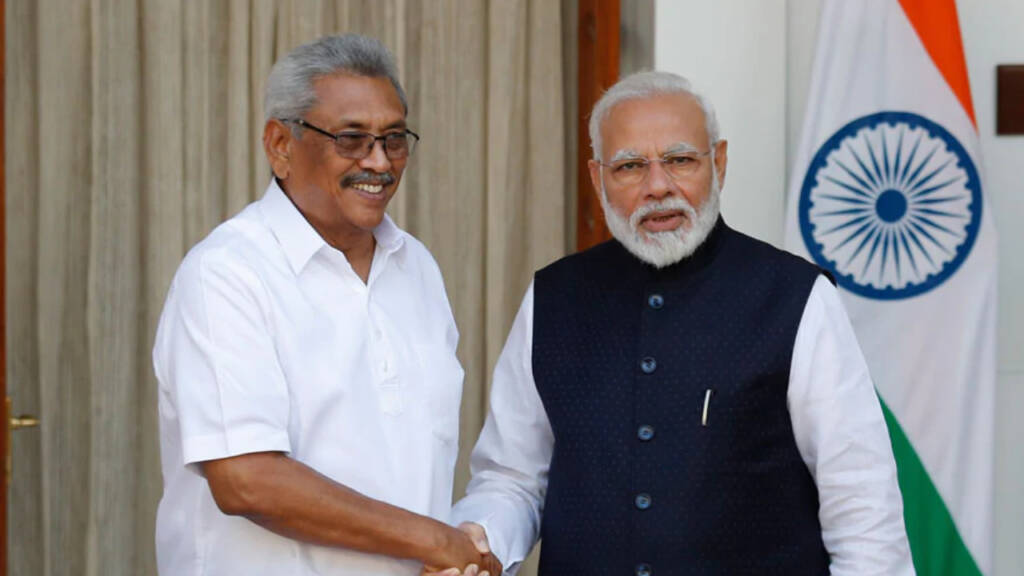As per the official statement released by the two countries during the visit of India’s External Affairs Minister to Sri Lanka, India will give priority to the island country in COVID-19 vaccine supply. India has been, right from the day vaccination efforts against the Coronavirus started, a top contender to come up with a vaccine against the deadly disease.
Given the prowess of India in vaccine manufacturing (the country is the largest manufacturer of vaccines in the world and the majority of the developing, as well as developed countries, depend on India for polio, tuberculosis vaccine), many countries depend on India for Coronavirus vaccine, too. One indigenous vaccine (Bharat Biotech) and one foreign vaccine (Oxford-AstraZeneca) have been approved by the drug controller general of India (DGCI).
Now, most of the neighbouring countries and many other developing countries which are looking for cheap and effective vaccines are looking towards India for vaccines and Sri Lanka is one of them. India has agreed to supply vaccines to Sri Lanka on a priority basis and rates charged to neighbouring countries will not be more than that of India.
However, in return for vaccines on a priority basis, India has asked countries like Sri Lanka to be good neighbours. As an instance, the Foreign Minister conveyed to the Sri Lankan government that they should ‘fulfil the expectations of Tamil minority’.
Foreign Minister S Jaishankar pointed out that it was in Colombo’s own interest to fulfil the Tamil minority’s expectations for “equality, justice, peace and dignity within a united Sri Lanka”. He added, “That applies equally to the commitments made by the Sri Lankan government on meaningful devolution, including the 13th amendment of the Constitution. The progress and prosperity of Sri Lanka will surely be advanced as a consequence.”
Previously, Prime Minister Modi, during the Sri Lankan Prime Minister Mahinda Rajapaksa’s first visit, had also said that the island country should ensure the rights of the Sri Lankan Tamils.
“I am confident that the Sri Lankan government will realise the expectations of the Tamil people for equality, justice, peace, and respect within united Sri Lanka,” PM Modi said.
He further added, “India and Sri Lanka are neighbours as well as close friends. We share common bonds. Terrorism is a big problem in our region. Both of us have fought it befittingly. We will further increase our cooperation against terror.”
The mention of ensuring peace and justice for Sri Lankan Tamils by the Indian government (previously Prime Minister and now the Foreign Minister) is significant. Sri Lanka has a sizeable Tamil population and there was fear that the island country would plunge into yet another civil war when it became clear that Sinhalese strongman Mahinda Rajapaksa was all set to return to the corridors of power in Sri Lanka.
The island country witnessed a bloody war between the LTTE and the Sri Lankan government which lasted for decades. It was Mahinda Rajapaksa’s government that ended the civil war by eliminating the LTTE but allegations of human rights violations and heinous war crimes continue to haunt Sri Lanka.
In 2012, the then UPA government under severe pressure from the Tamilian parties like the DMK led to India voting against Sri Lanka at the UNHRC and it did the same.
In hindsight, India’s decision to vote against Sri Lanka at the UNHRC prompted the island nation to gravitate towards China as the latter along with Russia had backed Sri Lanka at the UNHRC. This led to Sri Lanka incurring massive debts from China, falling into the infamous Chinese debt trap after which Sri Lanka had to lease its Hambantota port to China for 99 years, sending shock-waves across the world.
However, the Modi government has been able to recalibrate the ties with the island nation, and in recent months the Sri Lankan government has pronounced the ties with China as “purely commercial”.
A peaceful resolution of the Sinhala-Tamil dispute is in the interest of both countries and India is making sure that the Rajapaksa-led Sri Lankan government, which is otherwise known for having a hard stance against the demand of the Tamil minority, stays on its track to ensure a peaceful resolution.
